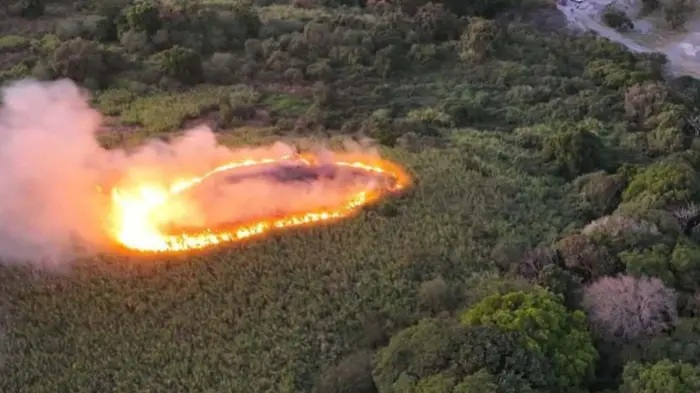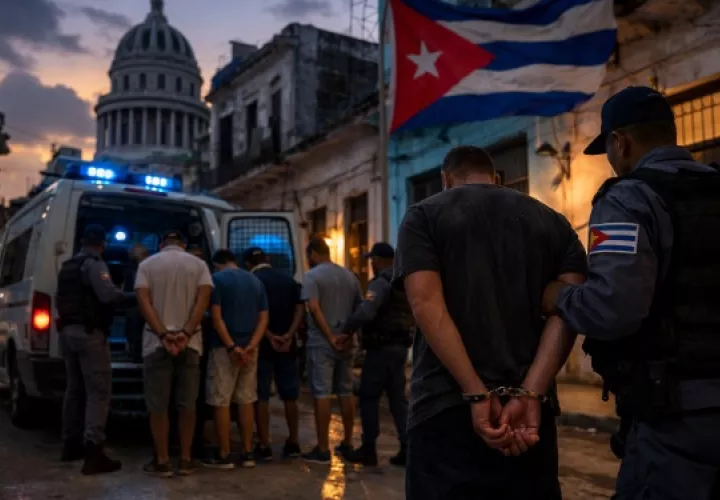Israeli security firms role in Panama revealed by WikiLeaks

A report based on WikiLeaks revelations Panama’s relationship with an Israeli security firm has been highlighted by McClatchy Newspapers and syndicated across the U.S.
It is one of a series of stories focusing on Panama's current administration, and coming out of Wikileaks and containing frank assessments of President Martinelli and his relationships with his inner circle, including Raul Mulino who had the job of security minister because "No one else wanted it".

But it was Mulino who helped lead the government counter attack over recent scandals, claiming it was an orchestrated program to discredit the government, but the Wikileaks revelations are being published in other countries direct from WikiLeaks.
A security company led by the former head of operations for the Israeli military made such inroads into Latin America a few years ago, that U.S. diplomats saw it as a security risk and moved to thwart the company's expansion, diplomatic cables show.
The ability of the Israeli security consultancy to obtain contracts in Colombia, Peru and Panama in rapid succession speaks to the prowess of retired Israeli military officers in peddling security know-how amid perceptions that they'd bring better results than official U.S.
At one point, Panama's intelligence chief threatened to rely more heavily on the Israelis out of anger that U.S. officials wouldn't tap the phones of President Martinelli’s political enemies, according to cables. U.S. officials countered that such an arrangement would threaten all security cooperation with Panama, and the Panamanians backed down.
Colombia was the first Latin nation to sign a contract with Global CST, doing so in late 2006, according to one cable, the same year its founder, Maj. Gen. Israel Ziv, retired as head of the operations directorate of the Israel Defense Forces.
Ziv "was a personal acquaintance of then-Minister of Defense Juan Manuel Santos," the cable said. Santos is now Colombia's president.
"Over a three-year period, Ziv worked his way into the confidence of former Defense Minister Santos by promising a cheaper version of USG (U.S. government) assistance without our strings attached," the cable said.
With a foot firmly in the door in Colombia, Ziv roamed the region, going next to Peru, a coca-producing nation that also faced security challenges.
The Israeli firm signed a one-year contract worth $9 million to help Peru defeat the Maoist Sendero Luminoso insurgency "once and for all" in that nation's remote Apurimac and Ene river valleys, according to another U.S. cable.
When Global CST approached Panama's government about expanding on an initial contract, red flags went up at the U.S. Embassy.
In early 2010, an Embassy cable to Washington said Panama had already paid Global CST for a small security study but the nation's intelligence chief, Olmedo Alfaro, was threatening to rely more heavily on the Israelis out of anger that U.S. officials would not tap the phones of the president's political enemies.
"Alfaro is increasingly open about his agenda to replace U.S. law enforcement and security support with Israelis and others," the cable said, adding that the move "bodes ill" for quelling narcotics activity and crime in Panama.
U.S. officials told the Panamanians that they would limit security cooperation and intelligence sharing if private consultants from a third nation were involved.
"In a meeting with then-U.S. Ambassador Barbara Stephenson, Panamanian Vice President Juan Carlos Varela said that the government "would not let Israeli influence damage the U.S.-Panama relationship," a cable said.
President Ricardo Martinelli "was similarly taken aback, and emphasized that he did not want to endanger relations with the USG, saying 'We don't want to change friends,'" the cable said.
Adding to the pressure on Panama was news that Colombia's relations with Global CST had soured. In a meeting in late 2009 with the then-U.S. Ambassador to Colombia, William Brownfield, national police chief Oscar Naranjo complained that the company had turned out to be a "disaster," a cable said.
Panama’s presidential guard was beefed up by Israelis after a much publicized alleged plot to kidnap President Martinelli and turn him over to the Colombian guerrilla organization FARC.
The “plot” was later declared a fraud and in late March this year, a judge ordered the release of three people, who had been arrested and jailed in January 2010.





